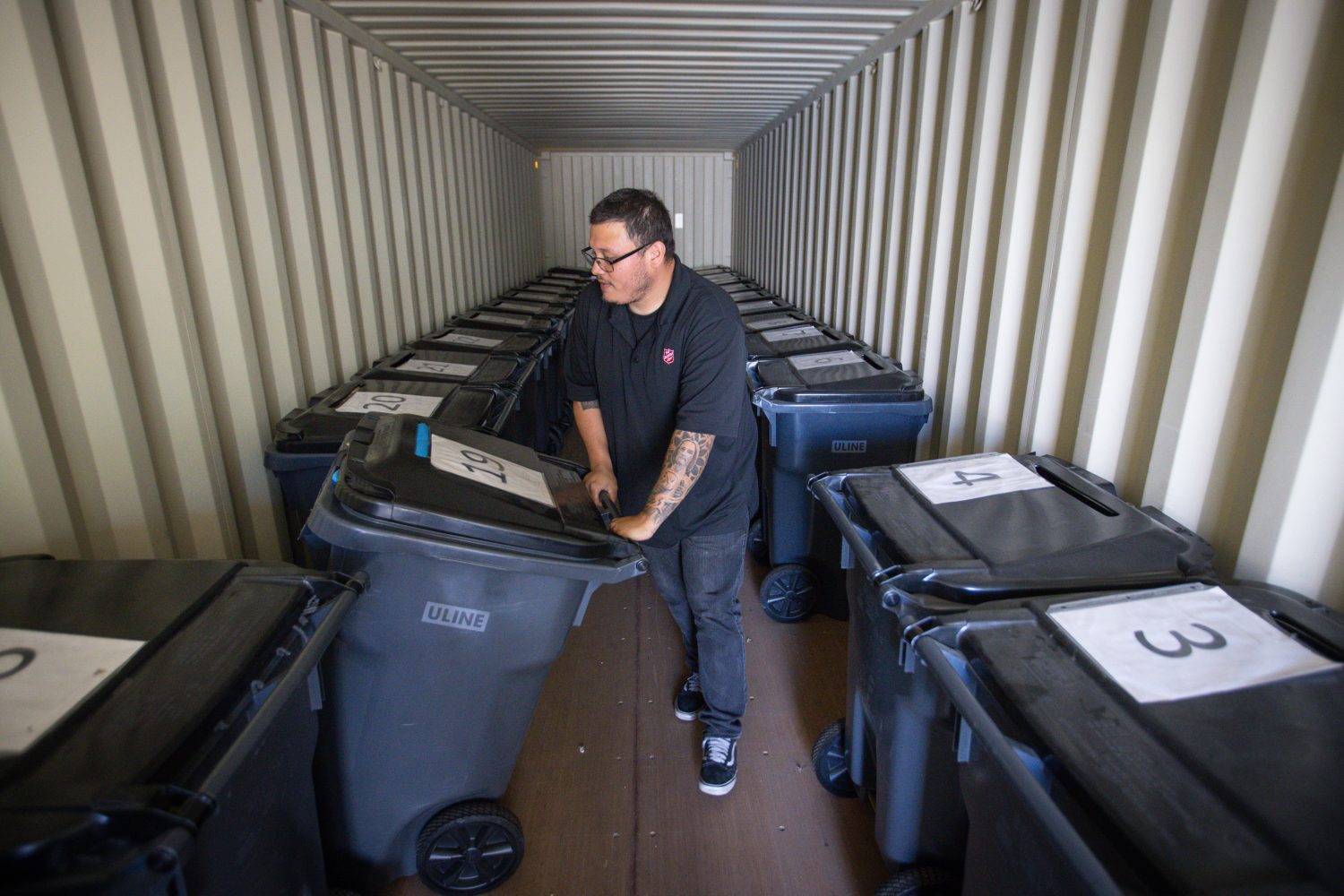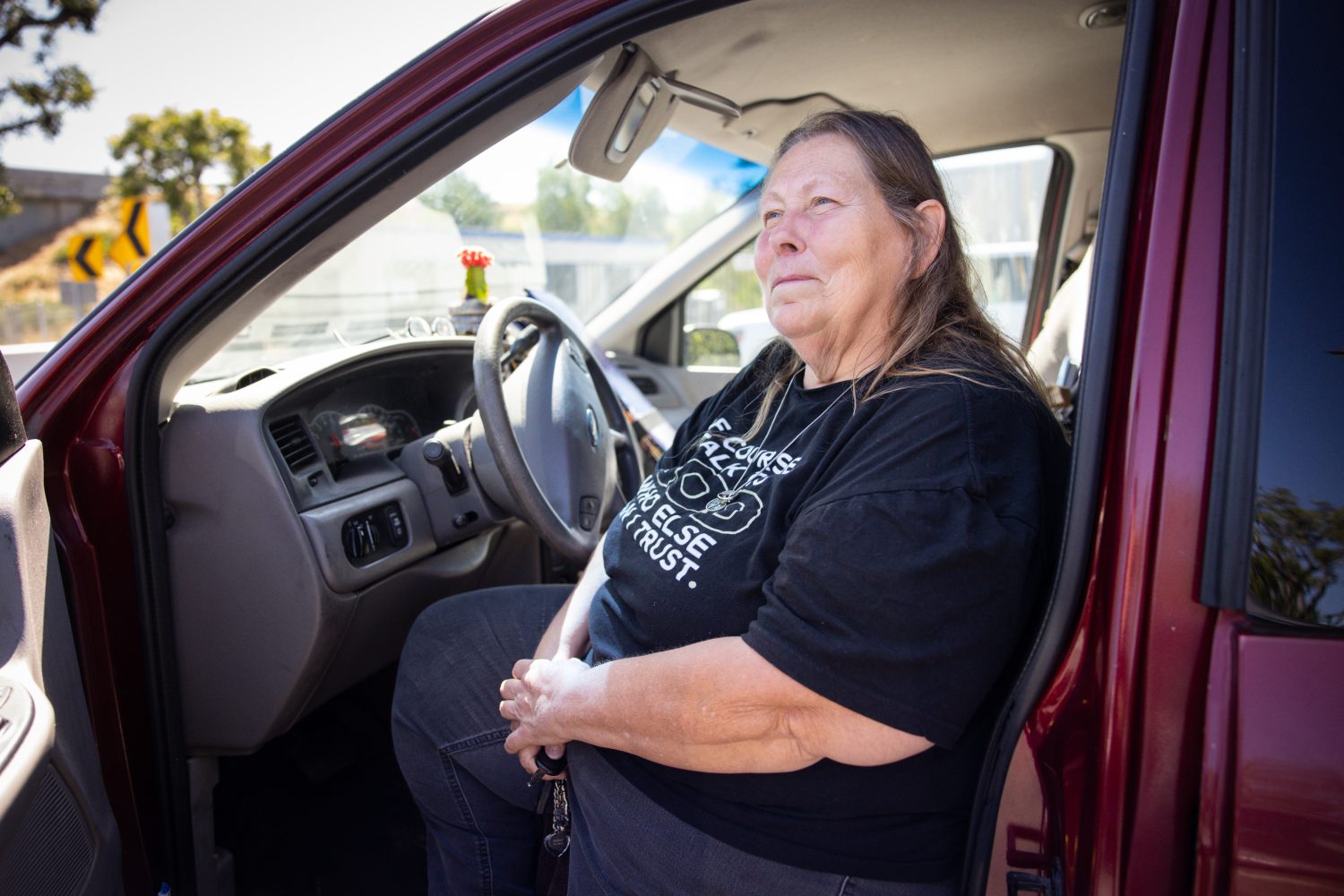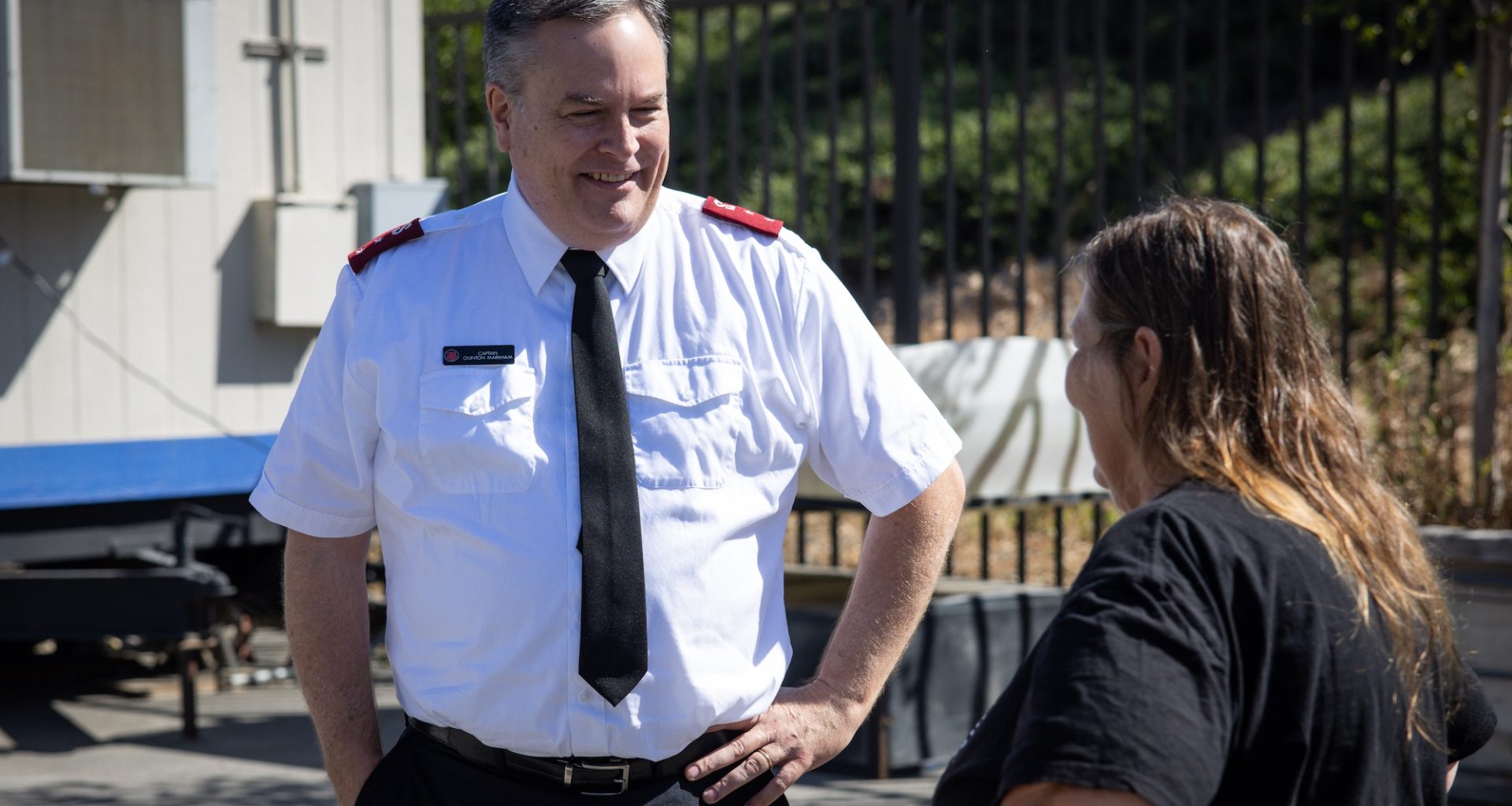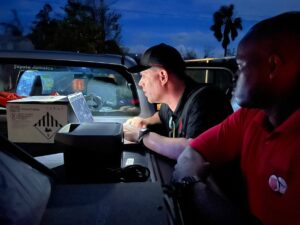Wedged between the freeway and railroad tracks is a small sliver of land where The Salvation Army has a physical presence in Burbank, California. Its closest neighbors, IKEA, the train station and a transit center.
At the site, a collection of shipping containers and mobile units create a space for people experiencing homelessness to come during the week for assistance, meals, showers and more. The offering in highest demand? Safe Storage.
“It’s one of the biggest issues facing us here at this location,” said Glendale-Burbank Corps Officer Captain Quinton Markham. “The demand is much more than what we’re able to provide because we only have so much space and so many bins.”
The “Safe” as it’s referred to, opened in September 2021 through a partnership with the City of Burbank. The free storage facility features 40 60-gallon bins for people experiencing homelessness to store their personal belongings, with some exceptions: No food, waste, weapons, liquids, drugs or sharp objects, among other items.
Bins are signed-out for use on a first-come first-served basis, and cannot be shared with others. Currently, the Safe has a waitlist.

“Usually we tell them to put their valuables, like clothing, documents…and we always request them to try to come in at least once a week to tell us how they’re doing,” said Safe Storage and Help Center Coordinator Servio Escobedo. “Sometimes they can’t come once a week, so I tell them, ‘Here’s my card, and just please call in, check in,’ so then at least we can have some type of communication.”
Escobedo said sometimes, they won’t see someone for some 30 days, and they’ll have to move the items to voluntary storage to make room for someone else to store their belongings.
Safe storage is popular because it’s needed. Escobedo said when people leave their stuff on the streets, many times they’ll hide it in bushes only to come back and have it taken—not ideal for any belongings, but especially cherished items or identification documents.
“When an individual is out on the streets, it’s difficult to trust anybody,” Markham said. “Leaving your belongings in the care of somebody else, you’re running a big risk…We’re somebody they can trust.”
And Escobedo said establishing that trust is key.
“One thing that I like to pride myself about the location is that we don’t treat the clients here as numbers,” he said. “We treat them as individuals and human beings.”
Escobedo knows most everybody’s name who visits the site, which is usually some 20 people a day. He said sometimes, if he notices people hanging around when he’s going on his lunch break, he’ll take his lunch and eat with them to build rapport—“Then everybody can feel comfortable when they come over here,” he said.
The safe storage and other services The Salvation Army provides at the site often serve as a starting point for building relationships with people experiencing homelessness. Escobedo and the team walk alongside them, meeting practical needs with material goods and resources, providing transportation to key appointments or connecting to other resource providers, among other services.

When Nancy Kline first heard about the Safe on the streets, she was looking for a safe place to shower.
When they said “The Safe,’” she wondered, “what does it stand for?” She now likes to say, “The Salvation Army for everyone.”
That was a year-and-a-half ago, and she remembers being pleasantly surprised by the mobile unit’s ADA-compliant hydraulic lift.
“I had some medical issues…and they lifted me up,” she said. “And I thought, ‘That is great’…because I didn’t have to worry about getting up the steps and falling backwards.”
Kline lives in her van, which is currently nonfunctioning. When Escobedo learned she was unable to get a needed surgery to remove cancerous cells due to lack of transportation, he provided transportation to and from the hospital and dedicated time to further support her medical needs. He also arranged for Kline’s van to be parked at the Safe during the procedure and recovery time, which brought her peace of mind.
“That was a fear I didn’t have to worry about, so I made it through,” she said. “I’m high risk for surgeries, and if I didn’t have that fear to worry about, then I was great.”
Escobedo’s efforts resulted in him being named Employee of the Month in December 2024 for The Salvation Army Southern California Division, which stretches from the U.S.-Mexico border to the Antelope Valley.
“Servio understood the urgency of Nancy’s surgery…and he went above and beyond by not only assisting with transport but also dedicating time to explore other programs that could further support her medical needs,” Markham said. “It’s wonderful to see how our team members, like Servio, demonstrate our core values by making a real difference in the lives of those we serve.”
Kline has since gone on to become part of the Glendale-Burbank Corps and even worked as a paid bellringer at Christmastime. During the 2024 kettle season, Markham said she was the corps’ highest-earning bellringer per hour. Her enthusiasm also carried over to the kettle location’s employees, who would ask where she was on her off days, he added.
Today, Kline keeps Escobedo’s business cards to hand out to others experiencing homelessness.
“I take them and I give them to people on the streets, and I say, ‘Hey, go see this place,’” she said.
She was due for another stack.
Do Good:












